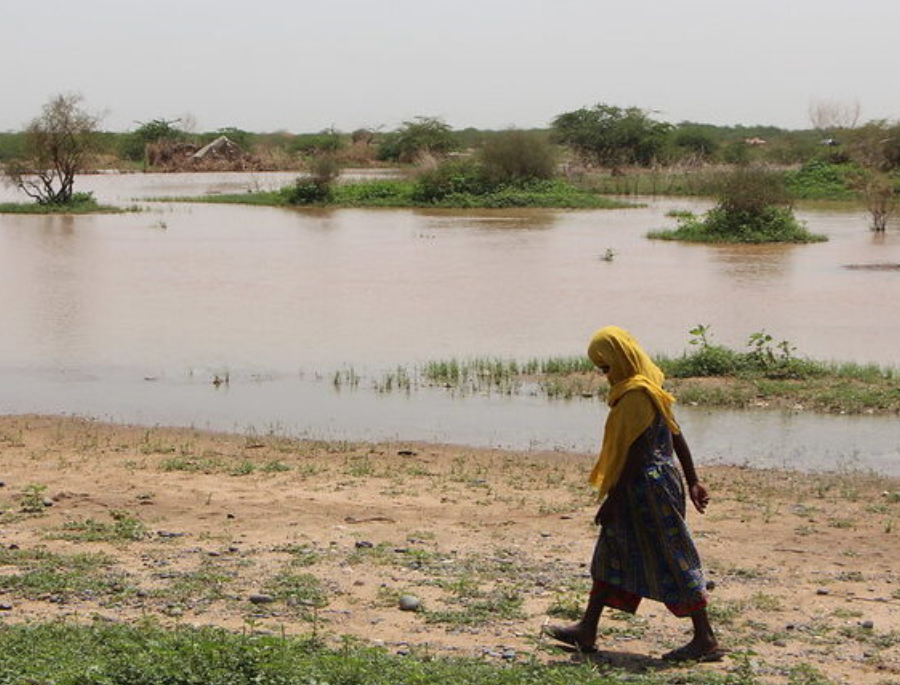By Isabelle Gerretsen Source : https://www.climatechangenews.com/2022/11/22/scientists-warn-data-gaps-should-not-block-africans-from-loss-and-damage-funds/
Scientists warn that a lack of weather data in much of Africa means that loss and damage funds can not be dependent on a disaster being proven to be caused by climate change.
A shortage of weather monitoring stations in places like West Africa’s Sahel region make it difficult to prove a disaster was caused by climate change.
But that shouldn’t stop people affected by disasters like droughts from getting money to rebuild their lives when their livestock die, scientists Friederike Otto and Joyce Kimutai told Climate Home.
At Cop27 in Egypt last weekend, countries agreed to establish a fund to support climate victims and tasked a transitional committee with working out the details by Cop28 in Dubai next year.
This committee will work out how to determine under what circumstances rich countries should pay out funds to developing ones for climate disasters.
Last week, scientists from World Weather Attribution said they could not work out climate change’s role as in this year’s food crisis in the Central Sahel region of north-west Africa.
Erratic rainfall in 2021 triggered a severe food crisis, leaving 9.7m people in Burkina Faso, Mali and Niger facing hunger.
Scientists used three observational data sets and three indices of wet season characteristics. These were how much it rained in June, when it started raining and how long it rained for. They concluded that they “could not detect significant trends or a climate change influence in the 2021 rainy season.”
But they said this could be due to uncertainties in the observational data and problems when working out the climate models for drought.
“It could either be because the data is quite poor or because we have found the wrong indices. Or it could be because there really is no climate change signal,” said Friederike Otto, co-lead of World Weather Attribution. “We have no way of identifying which of these three options it is.”
The data gaps are partly due to a lack of weather stations in Africa. The data gaps are partly due to a lack of weather stations in Africa. Mali, for example, has just 13 active weather stations, compared to 200 in Germany – a country one third the size of Mali, Bloomberg reports.
Weather stations are expensive to set up and maintain but are critical to understand the current and future climate trends.
“The real problem is the long-term investment in capacity building,” said Otto. “That’s not just about building weather stations, but about [investing] in people.”
Climate attribution informs the debate on loss and damage.
Joyce Kimutai, climate scientist at the Kenya Meteorological Department, said there are serious concerns about attempts to connect loss and damage finance directly to attribution data.
“It’s an ethical issue because if you do not provide compensation for losses and damages [in the case of] events that cannot directly be attributed to climate change or where the signal is not good enough, it’s going to really disadvantage communities that are the most vulnerable and most exposed,” she said.
“This kind of finding is not atypical for regions of very high [climate] vulnerability,” said Otto. “That needs to be taken into account when designing the mechanism by which a loss and damage fund releases finance. If you would require proof of the role of climate change every time funds are released, you will basically create a fund that benefits the Global North [developed countries],” she said.
EU-developing countries’ Cop27 deal offers hope to climate victims
“The actual release of the funds cannot be directly linked to concrete [data] and a regional attribution study,” said Otto.
“You cannot design a loss and damage fund completely independent of any scientific evidence, because then we can also get loss and damaged funds after an earthquake,” she acknowledged, but said other factors should also be taken into account, such as the country’s overall vulnerability to climate shocks.
The loss and damage fund will be paid in to by developed countries and perhaps some wealthier or more polluting developing ones. The funds will go to “vulnerable developing countries”.
The transitional committee will work out the definition of “vulnerable”. It does not have an official definition in the UN climate process.
It has previously been used to describe the world’s least developed countries and small island states.
Greenwash alert as Cop27 draft allows double claiming of carbon credits
But the European Commission’s climate lead Frans Timmermans said last week that it should be broader than that, including countries like Pakistan which aren’t among the world’s very poorest.
The developing world’s lead loss and damage negotiator Vicente Yu tweetedyesterday that “all developing countries are particularly vulnerable”.
“What do we mean by vulnerability and losses and damages?” asked Kimutai. She said the African network on loss and damage is working hard to define these terms over the next year, ahead of Cop28.
Instead of looking at the climate attribution for every specific event, regional climate trends underpinned by data and the vulnerability of certain ecosystems, such as drylands, should be taken into account, said Kimutai.

